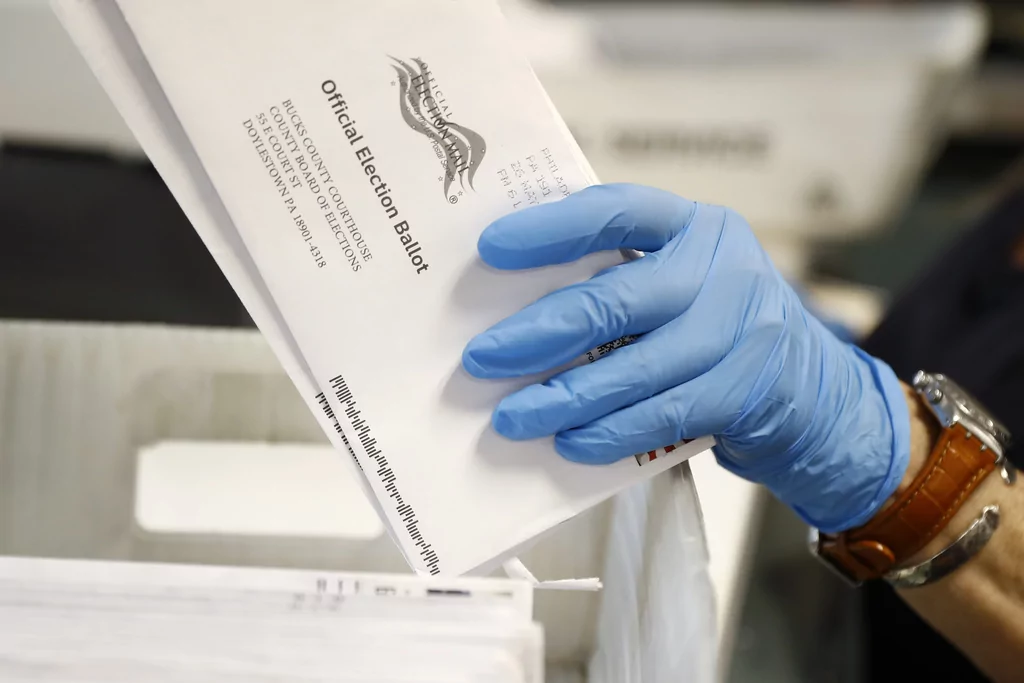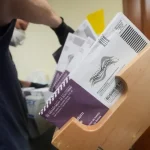

Republicans are aiming to limit the practice of state officials accepting ballots after Election Day, and they have waged their fight in the decidedly red state of Mississippi, where a favorable ruling could reverberate elsewhere.
The Republican National Committee and Mississippi Republican Party have been leading the charge since January, when they first brought the lawsuit, arguing that the Mississippi secretary of state was unlawfully accepting absentee ballots up to five days after the election.
After an adverse ruling from a federal judge, Republicans asked the conservative U.S. Court of Appeals for the 5th Circuit to act quickly to reverse the ruling, which could end up putting the case before the Supreme Court before the 2024 election.
A panel of three judges, all of whom were appointed by former President Donald Trump, heard oral arguments in the case on Tuesday and indicated that they planned to issue an expedited decision.
In Mississippi, election officials currently must count any absentee ballots they receive up to five days after the election, as long as the ballot envelope is postmarked by Election Day.
If the 5th Circuit rules in Republicans’ favor, an attorney for Republicans indicated during oral arguments that his clients could then move quickly to seek a new judgment from a lower court that would prohibit Mississippi officials from counting post-Election Day ballots.
Chad Ennis, a longtime attorney and vice president of the Honest Elections Project, speculated to the Washington Examiner that Republicans could have their sights set on broadening the implications of a favorable 5th Circuit ruling by elevating it to the Supreme Court.
“I think the goal would be, my guess is, the goal would be to get a good ruling from the 5th Circuit, have the other side appeal, and then the Supreme Court take it up and then hopefully get it applied nationally,” Ennis said. “That would seem to be the strategy.”
Ennis cautioned, however, that he did not “see a world” in which that plan could fully play out before the 2024 election, in part because of the Purcell principle, which discourages courts from making voting decisions right before an election to avoid confusing voters.
“It’s late. That’s a big ask for a court,” Ennis said.
Still, Republicans could be playing a long game and aiming to wield a 5th Circuit decision in other jurisdictions in the months and years to come to argue that Election Day represents a hard stop on accepting ballots, with the exception of overseas mail-in ballots, which are governed by a separate federal statute designed to accommodate military members.
Mississippi’s rule went into effect in 2020, when many states changed their election laws on an emergency basis in the name of COVID-19. However, more than two dozen other states accept mail-in ballots after Election Day, and most states have some form of early voting available. The wider range of ways that people can cast their ballots represents a modern-day shift away from voting on one designated day.
The attorney representing Republicans during oral arguments on Tuesday said this was a shift in the wrong direction, at least in terms of accepting ballots after Election Day.
After the attorney argued that Election Day is one day chosen by Congress and “not up to the subjective views of each state,” the three-judge panel pressed him on how he would justify early voting and mailing ballots before the election. The attorney replied that early voting was consistent with Election Day, which represents a “final selection of officers.” Ballots cannot, based on court precedent, be counted after that day but they can be counted before that day.
“The election refers to the final moment,” the attorney told the 5th Circuit panel. “It refers to the consummation of an election, the joint action of both voters and Election Officials meant to make that final selection.”
Ennis’s group also advocates ballots to arrive by Election Day. The Honest Elections Project vice president said it “builds election integrity.”
“We saw in 2020, where all these mail-in ballots came in late, and sometimes it moves the needle on the final results, and the results you hear on election night get changed, and that’s not a good place,” Ennis said. “We’ve seen people get really nervous when they start seeing that after Election Day, after results are reported, that numbers change.”
Florida Secretary of State Cord Byrd, whose state is the third most populous in the country, told the Washington Examiner in a recent interview that the most crucial policy states could follow would be to tabulate votes by election night.
CLICK HERE TO READ MORE FROM THE WASHINGTON EXAMINER
Florida has successfully wrapped up its vote counting process by election night in recent years, while other massive states, like California, have taken weeks to provide race outcomes.
“The single most important thing I think other states could do is say that all ballots must be into the elections office by the time polls close,” Byrd said. “This whole — this is what’s happening in other states — it has to be postmarked. That’s where it’s taking them days or weeks to count. It’s why we, as the third-largest state, can have it out by 10 o’clock at night because there’s no excuse. There is no exception. If that ballot isn’t in, it ain’t getting counted.”






